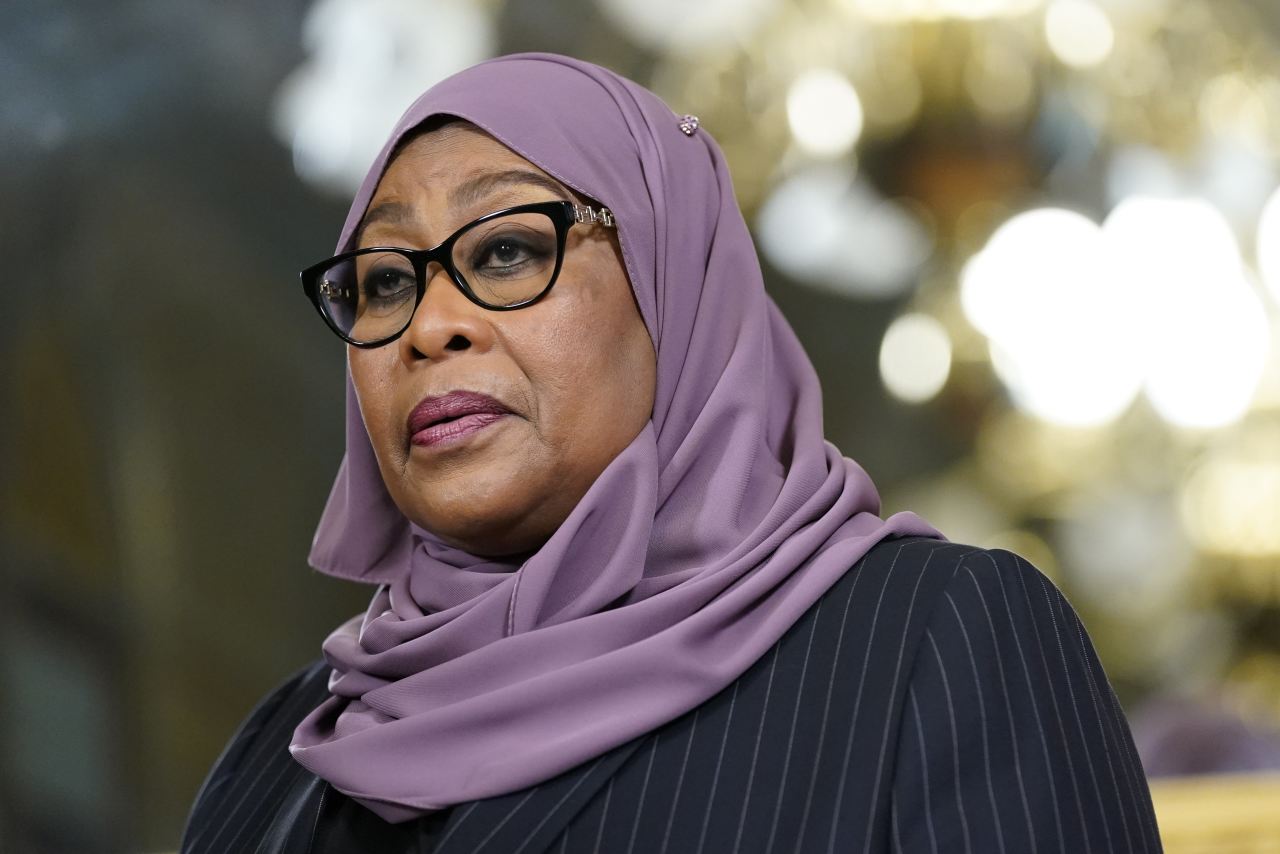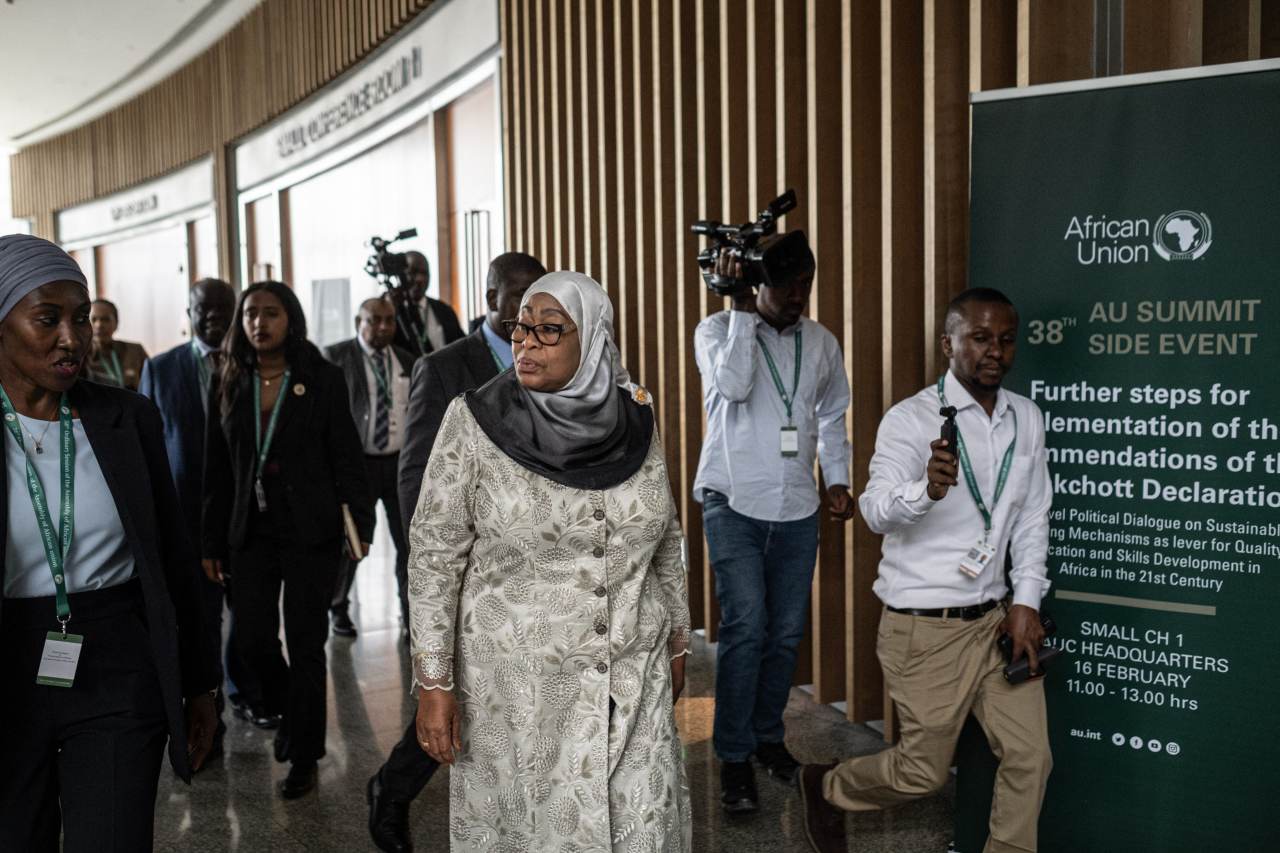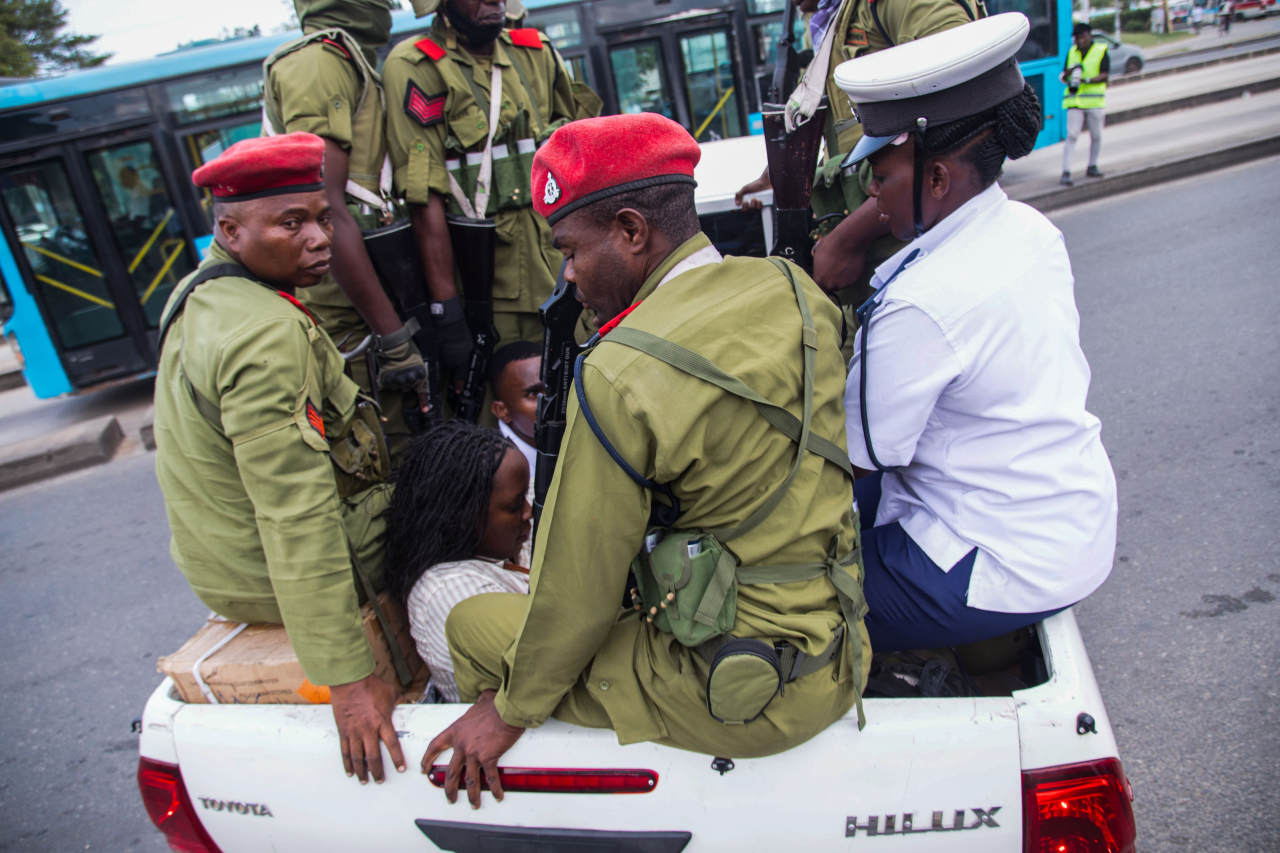Tanzania's First Woman Leader Fights for Rights, Then Turns to Repression

Samia Suluhu Hassan, Tanzania’s first female president, came to power as a renowned defender of human rights. She is clinging to it, critics say, by locking up and torturing those who stand in her way.
In recent months, Hassan’s government has orchestrated abductions and killings of several political rivals, rights groups say. A senior opposition leader was found dead—beaten and doused with acid—after being abducted by security agents, according to his political party. Authorities closed a top newspaper, which had published stories about his death. A Catholic priest is battling for his life after surviving a brutal beating by unknown assailants as he returned from a conference where he made remarks critical of the government.
The Tanganyika Law Society has documented more than 70 cases of abductions and disappearances since Hassan began to lead the East African country. Roughly two dozen of the victims were reportedly taken by individuals who identified themselves as police officers, according to the law society. As of August last year, around half of the victims were still missing.
“We are dealing with people that have no qualms killing and disappearing people,” said Maria Sarungi Tsehai, a Tanzanian activist living in exile in Kenya.
The Tanzanian government didn’t respond to requests for comment.

The ruling Chama Cha Mapinduzi, or Party of the Revolution, has dominated Tanzania’s politics since the 1970s, first in a leftist, single-party state and then as part of a multiparty democracy. Hassan, a 65-year-old from Zanzibar, rose through its ranks as a reformer, often railing at the injustices faced by women.
After winning a seat in parliament in 2000, she helped overturn a law that barred under-aged mothers, frequently victims of rape, from returning to school after giving birth. As a government minister she oversaw the drafting of a new constitution strengthening protections against rights abuses.
Hassan’s steady ascendance was sealed when presidential candidate John Magufuli chose her as his running mate in 2015. After he died of Covid in 2021, months into his second term, Hassan became one of only two female serving African heads of state and quickly began adding to her credentials as a moderate, allowing opposition rallies, reopening banned newspapers and freeing jailed activists.
The measures, along with her soft-spoken demeanor, earned her the moniker “Mama Samia” and both tourism and foreign investment expanded.

“People resonated with her,” said Nicodemus Minde, a Tanzanian political scientist and researcher with the Institute for Security Studies. “She was seen as a figure who would bring about reconciliation—a radical departure from her predecessor.”
That was then.
Now Hassan is seeking her own mandate in October’s presidential election, and critics say she is turning to the repressive ways of Tanzania’s previous leaders to make sure she wins. In doing so, she is further shrinking the space for dissent across East Africa, where similar crackdowns are under way in Kenya and Uganda. She is also following a path laid by a generation of leaders who started out as idealists but later turned into more authoritarian figures, people such as Zimbabwe’s independence leader Robert Mugabe or Uganda’s Yoweri Museveni, who once criticized African leaders for staying in power too long but has now been president for nearly 40 years.
Among other things, Hassan has banned the main opposition party, Chadema, from contesting the election, and ordered the arrest of her most-serious challenger, Tundu Lissu, on a charge of treason. He faces a possible death sentence.
Political analysts say Hassan has struggled to turn the growth of the country’s tourism, mining and energy industries into a tangible improvement in living standards for many Tanzanians. Almost one in four between 18 and 35 are unemployed, according to a 2024 survey by Afrobarometer, a research firm, while the World Bank says some 43% of Tanzanians live in poverty.

Opposition to her government has also grown over the mounting perception among many people that members of the ruling party are enriching themselves. According to Tanzania’s auditor-general, $423 million of government funds were misappropriated by public officials during the 2023-24 fiscal year.
Hassan “has completely failed to deliver and is now brutalizing people,” said Rugemeleza Nshala, a lawyer for the Chadema party.
The situation on the ground is now drawing attention overseas. Last month, the European Parliament called for Lissu’s release and adopted a resolution denouncing Tanzania’s repression of opposition supporters. The U.S. urged Tanzania to investigate reported human-rights abuses.
Tanzania’s foreign ministry scoffed at Western criticism, saying Tanzania is a sovereign country, “governed by the rule of law.”

When activists and journalists from Kenya and Uganda tried to enter the country to observe Lissu’s trial last month, some were detained on arrival and deported. Martha Karua, a Kenyan politician who was among those deported, said, “Hassan, once hailed as reformer, has now fully embraced the tyrannical playbook over her predecessor.”
Two activists, Ugandan Agather Atuhaire and Kenyan Boniface Mwangi, managed to enter Tanzania. The following day, police officers came to their hotel in Dar es Salaam and arrested them, according to a spokesperson for the activists.
Atuhaire, who last year won the U.S. State Department’s International Women of Courage award, asked police officers to explain the reasons for her arrest and demanded an attorney, she said later.
The police responded with force: One blindfolded her while two others handcuffed and stripped her. For two days, Atuhaire was held incommunicado and sexually assaulted, before being dumped at the Ugandan border, she said in an interview. “It was horrifying,” she said.

She told reporters that police filmed the abuse to intimidate and humiliate her.
Mwangi told The Wall Street Journal that Tanzanian police handed him over to unidentified men, who stripped, beat, tortured and sexually abused him, all while demanding that he thank the president.
A Tanzanian police spokesman didn’t respond to messages seeking comment.
In televised remarks, Hassan accused the foreign activists of attempting to “intrude and interfere” in Tanzanian affairs.
“We will not allow them to cross the line here,” she said.
Write to Nicholas Bariyo at nicholas.bariyo@wsj.com and Caroline Kimeu at caroline.kimeu@wsj.com
Post a Comment for "Tanzania's First Woman Leader Fights for Rights, Then Turns to Repression"
Post a Comment